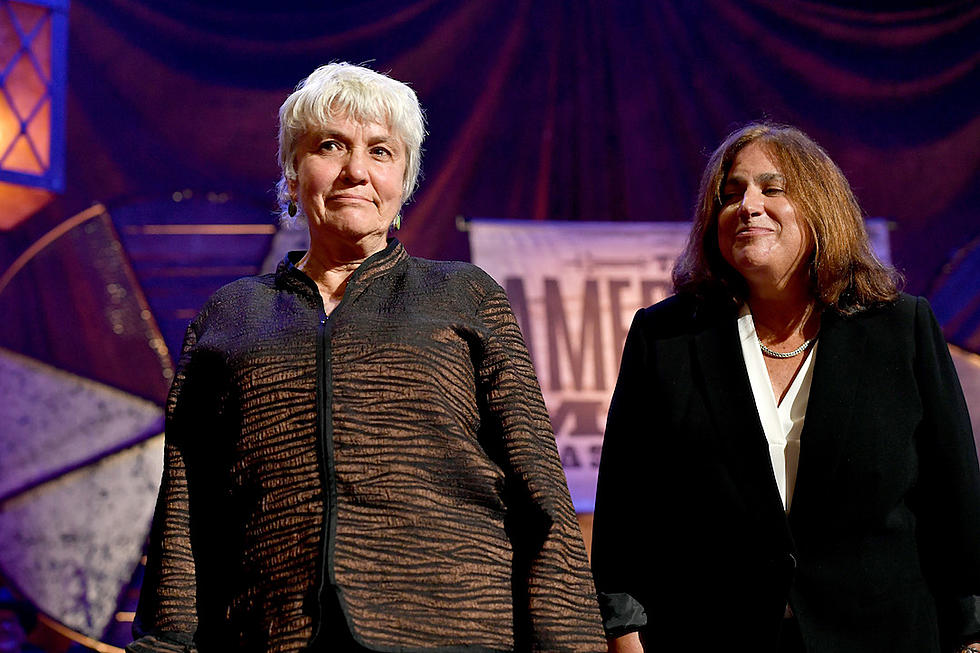
Indie Label Olivia Records’ Founders Want Today’s Female Country Artists to ‘Know Their Power’
When Olivia Records was founded in 1973, growing out of a Washington, DC, feminist collective and $4,000 in donations, label president Judy Dlugacz and flagship artist and founder Cris Williamson immediately came under fire for discrimination because of their all-female staff and artist and artist roster.
"We knew that music reaches people so deeply in their hearts, and we knew that there were absolutely no opportunities for women in the recording industry. I mean, session players, engineers, promoters, producers -- none of it. Nothing," Dlugacz recalls of that time. And as few opportunities as there were for women to succeed as solo artists or singers in groups, even fewer women found careers behind the scenes in the industry.
"So we decided we would [start a record company to give women those opportunities]," she continues. "And the industry basically said, 'Well, why are you discriminating against men?'
"'And we went, really?'"
"Who's got that kind of time?!" Williamson interjects. "We're for women, not against men. Why is it like that, the dichotomy? It's a false equivalency. It's a way to dumb it down and take the power out of it."
Still, Williamson and Dlugacz got that question from all sides. Not only were industry insiders baffled by their decision to form an all-female label, but the media also asked why they'd chosen to exclude male artists.
"We came up with, 'Well, if you can name five women bass players, drummers, guitar players, engineers, producers and promoters, we will close Olivia," Dlugacz goes on to say. "They never could."
In the 45 years since they founded Olivia Records, Dlugacz and Williamson say things have gotten better -- sort of. "I think we could almost name five women in all of those [categories]," Williamson says. "But not the executives yet."
Still, opportunities for women in the music industry have undoubtedly grown since the '70s, and Williamson attributes that change in part to the expansion of digital sales and artists' presence in the business. Back then, Olivia sought to provide talented women the chance to have a career in music; today, many women make similar opportunities for themselves by releasing music independently.
"The industry's changed. It's all digital, which means artists don't have to have a label. They just are the label," Williamson adds excitedly. "They've become so fiercely independent."
Up-and-coming artists who forge their own path without the backing of a label have become more prevalent as the digital industry has strengthened, and it's possible that following that road will allow more women to join the industry on their own terms. In fact, several members of CMT's 2019 Next Women of Country class are either independent artists or launched their careers as such.
Female artists and musicians have also historically seen greater recognition in genres such as Americana, where radio airplay is less of a factor. At the 2018 Americana Honors & Awards ceremony during September's AmericanaFest, Williamson and Dlugacz accepted a Lifetime Achievement Award in the Executive category for their work with Olivia Records. Yet both women agree that, even in mainstream country music, female artists are responsible for much more success and album sales than they're getting credit for.
"If you ask me, it's the women, really, who sell. They just don't get full credit yet," Williamson states. "I'm sure some of them aren't sure if they should emerge into their own strength, in a way, be on equal footing."
In a constantly changing and widening musical landscape, where new artists have a wide range of paths to success, she adds, the most important thing for young female artists is to be confident in their own strength, and to not listen to those who would prefer if it they stayed silent.
"Can you play? Can you sing? Is the music good? Is it helping the world? That's all you need to know," Williamson continues. "Women in country music are so powerful. They've just got to know their power. Some of them, I suspect, don't have that mirror in which to look that tells them, 'You are powerful. You are good.'"
Modern Country Music's Female Trailblazers
More From TheBoot









